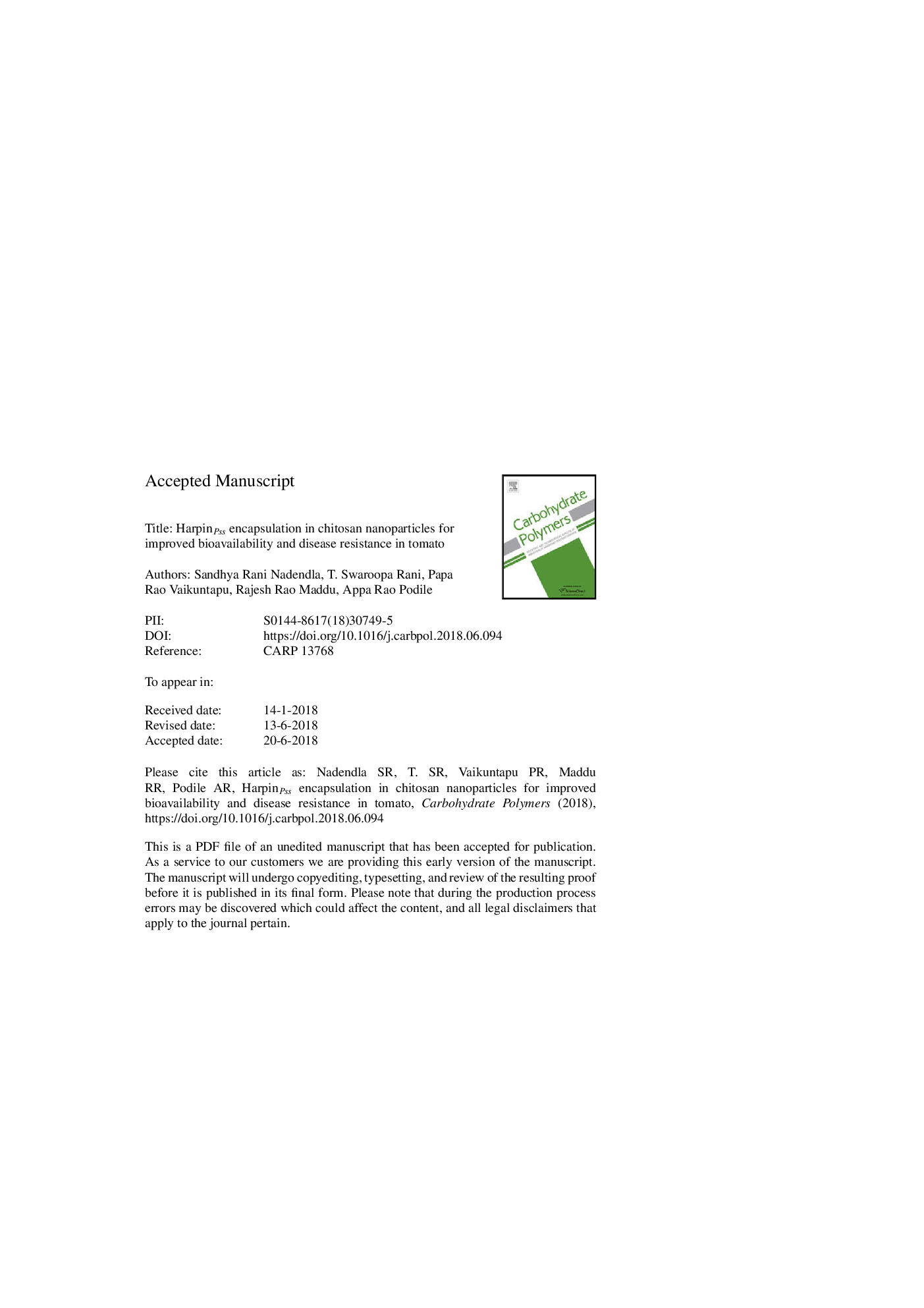| Article ID | Journal | Published Year | Pages | File Type |
|---|---|---|---|---|
| 7781152 | Carbohydrate Polymers | 2018 | 22 Pages |
Abstract
HarpinPss, an elicitor from Pseudomonas syringae pv. syringae, induces systemic acquired resistance in non-host plants, providing resistance to phytopathogens. Poor assimilation of harpinPss is a major constraint in foliar application as biopesticide. We, therefore, prepared harpinPss-loaded chitosan nanoparticles (H-CSNPs) to improve permeability and bio-availability of harpinPss in tomato. H-CSNPs showed high encapsulation efficiency (90%), improved stability (pâ¯<â¯0.01) and bioavailability of harpinPss (pâ¯<â¯0.01). Treatment with H-CSNPs resulted in sustained induction of peroxidase, phenylalanine ammonia lyase and decreased Rhizoctonia solani infection (pâ¯<â¯0.05). Transcripts of several genes involved in defense response were differentially expressed in harpinPss, CSNPs and H-CSNPs treatments. While, genes involved in jasmonic acid (JA) metabolism were up-regulated during harpinPss and H-CSNP spray treatments, indicating the role of JA pathway in triggering harpin-mediated defense responses. Furthermore, the entry of CSNPs into the cell and localization of harpinPss into chloroplast was tracked using rhodamine-labelled CSNPs encapsulated with GFP tagged harpinPss. The results of this study indicate use of H-CSNPs is effective for sustained-release of harpinPss and provides resistance for prolonged duration.
Related Topics
Physical Sciences and Engineering
Chemistry
Organic Chemistry
Authors
Sandhya Rani Nadendla, T. Swaroopa Rani, Papa Rao Vaikuntapu, Rajesh Rao Maddu, Appa Rao Podile,
